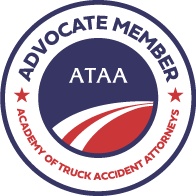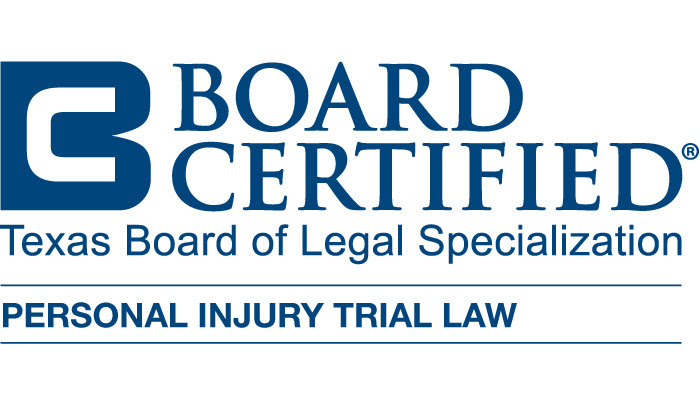Slip and fall accidents in Texas can happen unexpectedly, causing not only physical injuries but also financial burdens for the victims. When such incidents occur due to the negligence of a property owner, the injured party may have grounds to file a legal claim. Deciding whether to settle a slip and fall case or take it to court is a significant decision that can affect the outcome and potential compensation. Understanding the differences between settling and going to court is essential for anyone considering legal action following a slip and fall accident in Texas.


Understanding Slip and Fall Accidents
Slip and fall accidents are common personal injury cases that occur when a person slips, trips, or falls due to hazardous conditions on someone else’s property. These hazards might include wet floors, uneven surfaces, poor lighting, or obstacles in walkways. Property owners have a legal obligation to maintain a reasonably safe environment for visitors. When they fail to do so and someone is injured as a result, the injured party may pursue compensation through a slip and fall claim.
The process of filing a slip and fall claim involves gathering evidence to prove that the property owner was negligent. This evidence might include photographs of the accident scene, medical records, witness statements, and any incident reports filed at the time of the accident. Once a claim is filed, the injured party must decide whether to accept a settlement offer from the property owner’s insurance company or take the case to court for a judge or jury to decide.
The Process of Settling a Slip and Fall Case
Settling a slip and fall case involves negotiating with the property owner’s insurance company to reach an agreement on compensation without going to court. This process typically begins with the injured party’s attorney submitting a demand letter to the insurance company outlining the facts of the case, the extent of the injuries, and the amount of compensation sought. The insurance company may respond with a counteroffer, leading to further negotiations between the parties.
My focus is to give a voice to families who have suffered a wrongful death or a serious injury to a family member caused by an 18-Wheeler, commercial truck, or a drunk driver. Contact us today, we can help you.Helping Injury Victims for Over 25 Years
Settling a case can be advantageous for several reasons. It often provides a quicker resolution than going to court, allowing the injured party to receive compensation sooner. Settlements are also less costly because they avoid the expenses associated with a trial, such as court fees and witness fees. Additionally, settling a case allows both parties to avoid the uncertainty of a trial outcome, as they can agree on a specific amount of compensation rather than leaving the decision to a judge or jury.
However, there are also potential downsides to settling a case. The settlement amount may be lower than what the injured party could receive if they win at trial. Insurance companies often aim to minimize payouts, and initial settlement offers may not fully compensate for the injured party’s losses, including medical expenses, lost wages, and pain and suffering. It’s essential for individuals to carefully consider any settlement offer and consult with an attorney to determine if it’s fair and adequate for their circumstances.
Related Videos
Choosing a Personal Injury Attorney
Types of Compensation in a Truck Accident Claim
The Benefits and Risks of Going to Court
Choosing to take a slip and fall case to court involves presenting the case before a judge or jury, who will then decide on liability and the amount of compensation. Going to court can be beneficial because it offers the potential for a higher compensation award than what might be achieved through a settlement. This is especially true if the evidence clearly shows that the property owner was negligent and the injuries are severe.
Another benefit of going to court is the public nature of the proceedings, which can provide a sense of justice and closure for the injured party. The court’s decision can set a precedent, encouraging property owners to take greater care in maintaining safe premises. Additionally, a trial can bring to light any wrongdoing or negligence that might not have been fully acknowledged in settlement negotiations.
However, going to court also carries significant risks. The process can be lengthy, often taking months or even years to reach a resolution. This extended timeframe can be challenging for injured parties who are facing medical bills and other expenses while waiting for their case to be resolved. Additionally, there is no guarantee of a favorable outcome. A judge or jury might decide in favor of the property owner, leaving the injured party with no compensation and potentially owing legal fees and court costs.
The decision to go to court should not be taken lightly. It’s crucial to have a strong case with clear evidence of negligence and substantial damages. Consulting with an attorney who has experience in slip and fall cases is essential to evaluate the likelihood of success at trial and whether the potential benefits outweigh the risks.
Factors to Consider When Deciding Between Settling and Going to Court
When deciding whether to settle a slip and fall case or take it to court, several factors should be considered. These include the strength of the evidence, the severity of the injuries, the potential compensation, the costs associated with a trial, and the personal preferences of the injured party. Each case is unique, and what might be the best decision for one person may not be the same for another.
The strength of the evidence is a crucial factor in determining the likelihood of success at trial. If the evidence clearly demonstrates the property owner’s negligence and the resulting injuries, the injured party may have a strong case for going to court. On the other hand, if the evidence is weak or inconclusive, settling may be a more prudent option to avoid the risk of losing at trial.
The severity of the injuries also plays a significant role in the decision-making process. Cases involving serious injuries that require extensive medical treatment and result in long-term or permanent disabilities may warrant going to court to seek a higher compensation award. Conversely, if the injuries are minor and the medical expenses are relatively low, settling the case might provide a quicker and less stressful resolution.
Potential compensation is another important consideration. If the settlement offer is close to what the injured party might reasonably expect to receive at trial, it might make sense to settle and avoid the costs and uncertainties associated with a court case. However, if the settlement offer is significantly lower than what is needed to cover the injured party’s losses, going to court may be worth the risk.
The costs associated with a trial can be substantial, including legal fees, court costs, and expenses related to gathering and presenting evidence. These costs can quickly add up, making it more financially feasible to settle the case. Additionally, the time and emotional toll of a trial should be taken into account. Going to court can be a lengthy and stressful process, and some individuals may prefer to settle to avoid the emotional strain of a trial.
How an Attorney Can Help in Making the Decision
Navigating the legal complexities of a slip and fall case can be challenging, and the decision of whether to settle or go to court is not always straightforward. An experienced attorney can provide valuable guidance and representation throughout the process. They can help evaluate the strength of the case, negotiate with the insurance company, and advise on the best course of action based on the specific circumstances.
An attorney can also help gather and present evidence, such as medical records, witness statements, and testimony, to build a strong case. They can provide insight into the potential outcomes of both settling and going to court, helping the injured party make an informed decision that aligns with their best interests. In cases where a trial is necessary, an attorney can represent the injured party in court, advocating for their rights and seeking the compensation they deserve.
Deciding whether to settle or go to court in a Texas slip and fall case is a significant decision that can impact the outcome and potential compensation. Both options have their advantages and risks, and it’s essential for injured parties to carefully consider their circumstances, the strength of their case, and their personal preferences. Consulting with an attorney can provide valuable insight and guidance, helping individuals make an informed decision that aligns with their needs and goals.
If you or a loved one has been injured in a slip and fall accident, it’s important to understand your legal options and the potential benefits and risks of settling versus going to court. The attorneys at Willumsen Law Firm, P.C. are here to help you navigate the legal process and advocate for your rights. Contact us today to schedule a consultation and learn more about how we can assist you in pursuing the compensation you deserve.


